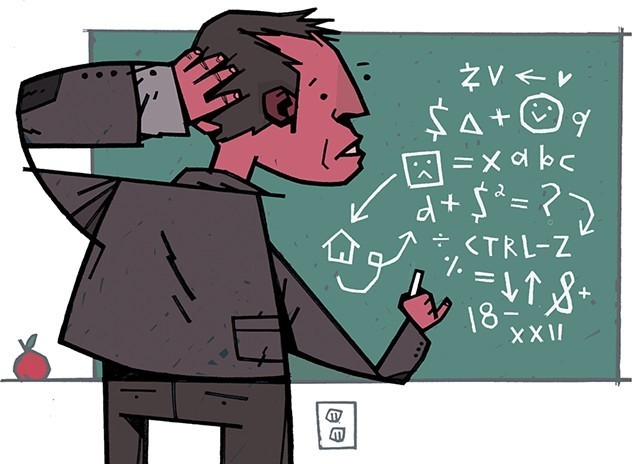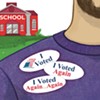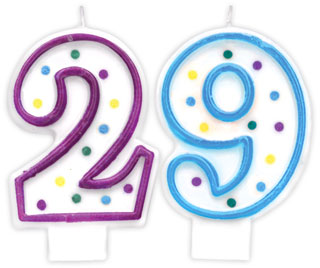
- File: Thom Gluck
In a letter sent on Monday to school leaders, Scott noted that the tax commissioner typically forecasts property tax increases related to education spending in a memo that's known as the "December 1 letter." But after an unprecedented school budget season — during which one-third of spending plans failed on Town Meeting Day — the governor said he wanted to reach out to school leaders even earlier "to help avoid another round of historic property tax increases next year."
Related As School Budget Season Drags On, Residents Put Education Spending Under the Microscope

Scott acknowledged that many cost drivers are outside of school districts' control. But, he said, "if we work together, we can stabilize the school budget process, reduce the risk of historically high school budget defeats and revotes, and create capacity for all of us to focus on improving student outcomes and implementing longer-term improvements."
In his letter, Scott encouraged school boards "to consider all options to contain education spending growth" this year, but he did not provide recommendations. Instead, he encouraged superintendents and school business managers to contact the Agency of Education for technical support.
Related Vermont Voters Reject School Budgets in 29 Districts

It warned that "Vermont cannot endure" another budget cycle like the one this past year.
"Without successful efforts to significantly reduce the rate of increase in school district spending proposals ... more budgets could fail, leading to statewide proposals designed to suppress spending rather than address costs," the memo said. "This would likely result in increased disparities in education funding across the state."
Related Education Costs Are Driving Double-Digit Tax Hikes, and Legislators Are Scrambling to Lessen the Blow

South Burlington superintendent Violet Nichols, in a written statement submitted to the Commission on the Future of Public Education, said her district was "alarmed" as it begins budget modeling for next fiscal year.
Last school year, the district applied a $3.2 million surplus to its budget in order to get property tax rate increases down to around 8 percent. But there is no surplus to draw from this year. And, she wrote, the district is anticipating it may have to "drastically cut staffing and programming levels" to achieve a budget that would get voter approval.
"As longer-term solutions are still conceptual," Nichols wrote, "we also need to take direct actions in advance of the FY26 budget development cycle which is already in full force as the doors open for another school year."














Comments
Comments are closed.
From 2014-2020, Seven Days allowed readers to comment on all stories posted on our website. While we've appreciated the suggestions and insights, right now Seven Days is prioritizing our core mission — producing high-quality, responsible local journalism — over moderating online debates between readers.
To criticize, correct or praise our reporting, please send us a letter to the editor or send us a tip. We’ll check it out and report the results.
Online comments may return when we have better tech tools for managing them. Thanks for reading.